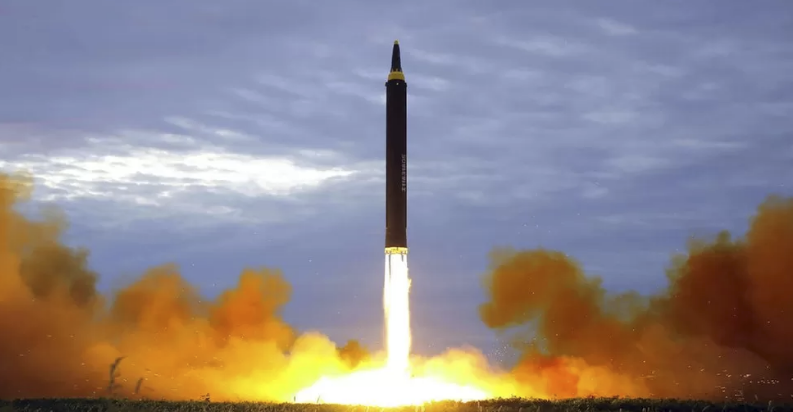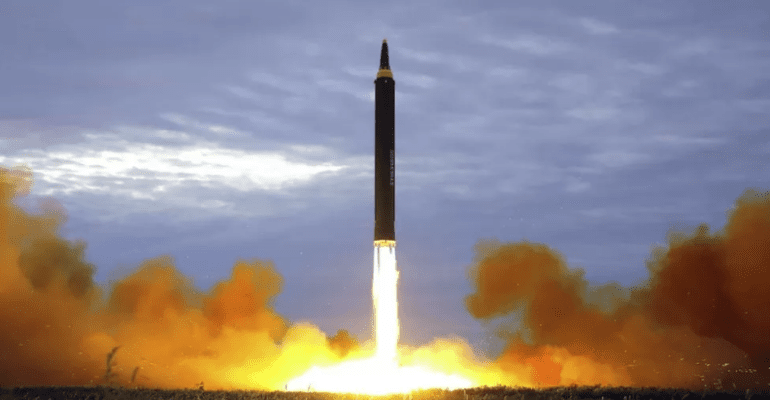By Lake Dodson


The scorching heat beats down upon the fried and barren land of New Mexico, in this desolate land, several sweating figures stand awaiting the results of a test. It was before these figures that a monumental blast ruptured within a fraction of a second. This explosion was unlike any other these figures had ever seen. The force of this explosion, however gripped the earth and tore it open with incredible force, its billowing mass of gaseous energy plumed upwards into the clouds and tugged at the tendons of the sky. The blurry haze of cumulus fire pulled them from their supports and deep within the epicenter of the hideous and towering mushroom shape. Finally, through the horrible ring of incalculable heat, the mass of energies was imbibed into the most treacherous circles of hell. These figures watched in terrifying awe as the bomb brutalized the territory before them, turning the quiet peace of the desert into the physical manifestation of a bloodshot eye. It was there, witnessing a weapon capable of instantaneous termination, that J. Robert Oppenheimer recollected one specific verse from the holy texts of the Bhagavad Gita: “Now I am become Death, the destroyer of worlds.”
Since then, the power of nuclear weapons has only increased. And with an increase in power comes an increase in responsibility. With an arsenal of over 5,000 nuclear weapons, the United States must be held accountable (Schumann, 2021). There exists a plethora of different scenarios relating to the armament and discharge of nuclear weapons which is contingent upon factors, such as geography, and or international affairs. However, each scenario also must answer the overarching question when it comes to the use of nuclear weapons: In what circumstances should the United States be willing to utilize this most terminal of weapons?
While there is certainly no lack of debate on the ethics of nuclear weapons and the capacity of their destructive power, and while the precautions of a nuclear holocaust are aplenty, there comparatively exists very little strategy for how to utilize such weapons in a militaristic sense. After all, unlike more traditional styles of military bombardment, there is no way for anyone to claim victory over an irritated abyss. To best emphasize how nuclear weapons eliminate both devensive and offensive stratagy, look no further than the B54. It is the smallest continued nuclear device by the United States military, it is the size of a backpack, and it is powerful enough to vaporize the entirety of the National Mall in Washington DC (Mizokami, 2019). That which has not already ceased to exist will be subjected to a rabid thermal emittance, overcharged with radioactive energy, expanding just shy of two kilometers (1.24 miles). How could a defence strategy be derived from such a game ending option as going nuclear?
This, according to the late Robert Jervis, an accredited political scientist and professor of International Politics at Columbia University, is exactly the reason why the tactics of nuclear weapons is so confusing. Dr. Jervis asserts that if a weapon is not suited for conquest, neighbors are less likely to take coercive threats seriously and it is up to the state in question to make itself secure (Waltz, 1981). If then it is the responsibility of a national actor to defend itself through the use of preventative military systems, what outstanding circumstances may the United States have that may adhere to, or contradict, this rule?
The United States has been seen as a central figure in world events since the end of the Second World War, even achieving the nickname “world police” as the amount of America’s involvement in the affairs of other international actors remains uncontested. This unique position on the world stage casts the United States in a moral dilemma: As a nation that holds such global clout, when should the ultimate use of force be utilized to stop crimes against the human race? According to the Carnegie Institute for the Endowment of International Peace, since nuclear war poses such extreme repercussions, American leaders should only consider nuclear weapons when faced with a threat of a similar or greater scale with a certain stoic, mathematical coldness in order to be as effective as possible (Perkovich,2020).
The circumstances in which the United States may consider using nuclear weapons cannot deal in absolutes, but for the good of humanity, must be scrutinized and conjectured with restraint upon at every variable to ensure the most thorough decision may be enacted. Such considerations must take into account not only the number of human lives that could be completely wiped from the Earth but the lives of friends and family, of knowlege and history, of grand buildings and religious sites.
In all, nuclear material can be measured in weight and half-life, but the family portraits shattered and singed as a result of the tremendous explosion cannot. The pros and cons of an atomic strike can be reasoned with and debated among the most educated and capable strategists, but the books being written, research being conducted, and museums hosting the most valuable of artifacts in the affected area would never have a chance to enlighten the world. The number of bodies can be recorded, but it could never be known if a child who lies within the rubble could have grown to become a great advocate for nuclear descalation. It is impossible to delineate exactly what criteria must be met for America to employ nuclear weapons. Even if the American military could construct a checklist or code, its execution could not possibly transpire without deep deliberation for each unique circumstance that could affect the equation, of which is vulnerable to fallibility. After all, how could any council of man rely on hominal reasoning to wield the power of a weapon that had been compared to the power of a god?
That is the inconceivable question to be answered. When should America itself become death, the Destroyer of Worlds?
About the Author
Lake Dodson is a junior political science major at the University of Mississippi. He believes that
through a better understanding of atomic sciences, a better, greener, and richer future could be
achieved through the power of nuclear energies. To achieve this, Lake works under Civic
Synergy’s Environmental Board, writes for effective foreign policy for the Realist Review
publication and The Commandant publication of the Univerity of Toronto, and participates in
multiple foreign exchange student programs on campus to develop a deeper understanding of
other cultures and peoples. Most recently, Lake had spent last summer working in Washington
DC for NHK Japan News as a junior reporter.

